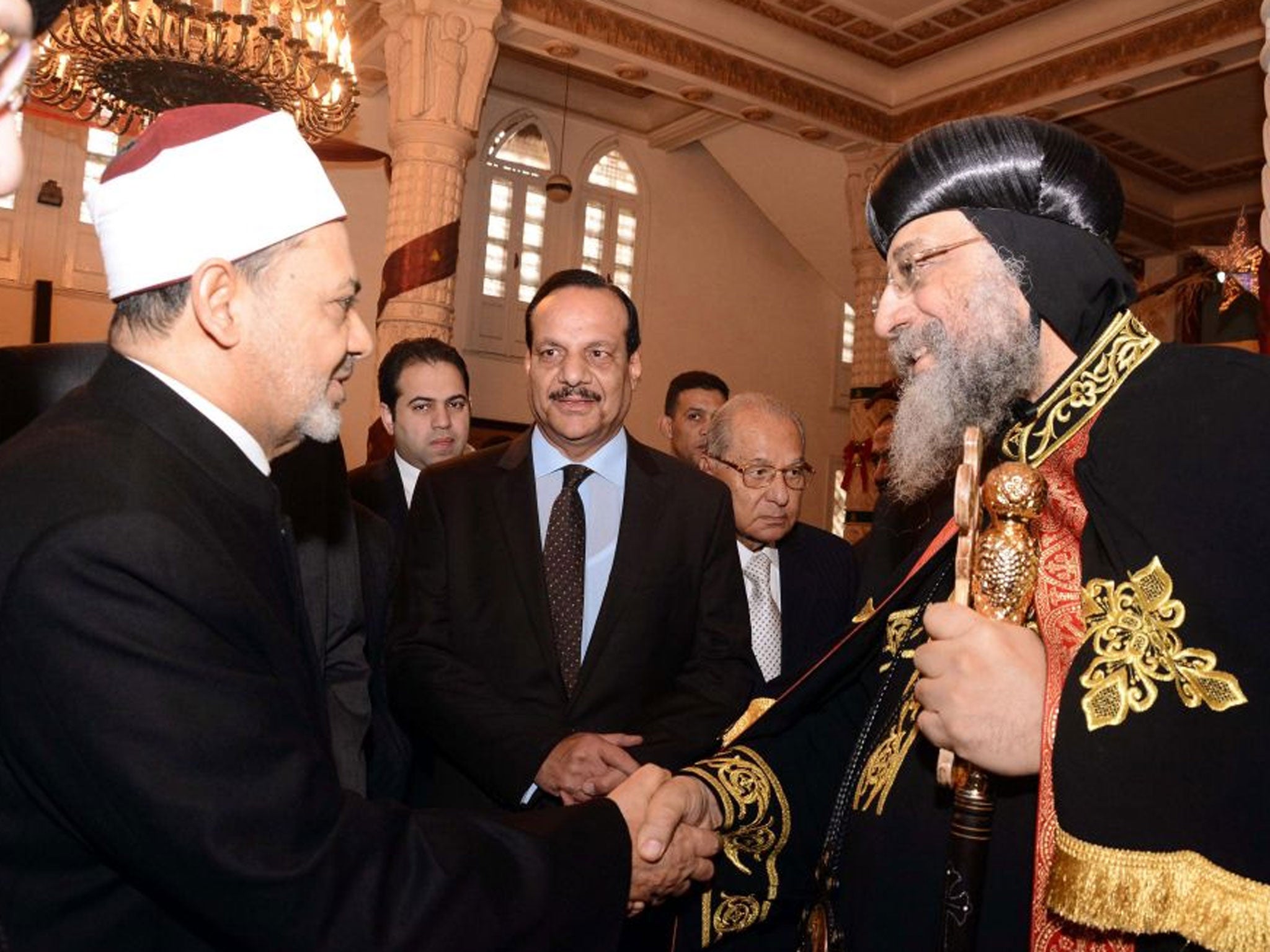Egypt's interim president Adly Mansour visits Coptic cathedral in symbolic move to see Pope Tawadros II

Egypt's interim president on Sunday made a rare visit to see the pontiff of the nation's Orthodox Christians at St. Mark's Cathedral, the papal seat in central Cairo, according to a brief statement by the church.
The highly symbolic visit to Pope Tawadros II by Adly Mansour was made ahead of the Coptic Christmas, which falls on Tuesday.
Mansour was installed by the military on July 3 to replace Islamist President Mohammed Morsi, removed from office after just a year in which relations between the government and the country's Christians were fraught with tension and distrust.
Egypt's Christians account for some 10 percent of the nation's 90 million people. They are mostly members of the Orthodox church, one of Christendom's oldest. They long have complained of discrimination by the nation's Muslim majority.
Morsi, a longtime leader of the Muslim Brotherhood, complained in a public speech just days before his ouster that leaders of the church came to see him wearing insincere smiles and accused them of being unnecessarily afraid of Islamist rule. Morsi's Islamist allies adopted sectarian rhetoric and accused Christians of being behind some of the mass protests against Morsi.
On his part, Pope Tawadros had taken the unusual step of publicly criticizing the president, rejecting an Islamist-tilted constitution adopted in 2012 that, in his view, was discriminatory and compromised the human rights of Egyptians.
Tawadros, enthroned in late 2012, has publicly endorsed the coup.
In August, Morsi supporters destroyed, looted or burned dozens of churches and church-linked facilities across Egypt. Christian homes and businesses also were attacked. The wave of anti-Christian violence followed the breakup of two sit-in protests by Morsi supporters by security forces in an operation that killed hundreds.
In a separate development, a Cairo court on Sunday convicted a prominent activist, his sister and 10 others for their part in an attack against the election headquarters of presidential candidate Ahmed Shafiq in 2012. All defendants received a suspended 12-month prison sentence.
However, the activist, Alaa Abdel-Fattah, will remain in police custody over separate charges that he broke a recently adopted law that places stringent conditions on street protests. Abdel-Fattah and his sister, Mona, are iconic figures in the youth movement that initiated the 2011 uprising that toppled autocrat Hosni Mubarak.
Sunday's ruling follows last month's conviction and sentencing of three other prominent activists for breaking the same law. They were sentenced to three years in prison, but they are appealing the verdict.
Relations between the military-backed authorities and icons of the 2011 uprising have soured, with the activists accusing the pro-military media of trying to cast that revolution as a foreign-backed plot.
AP
Join our commenting forum
Join thought-provoking conversations, follow other Independent readers and see their replies
Comments
Bookmark popover
Removed from bookmarks